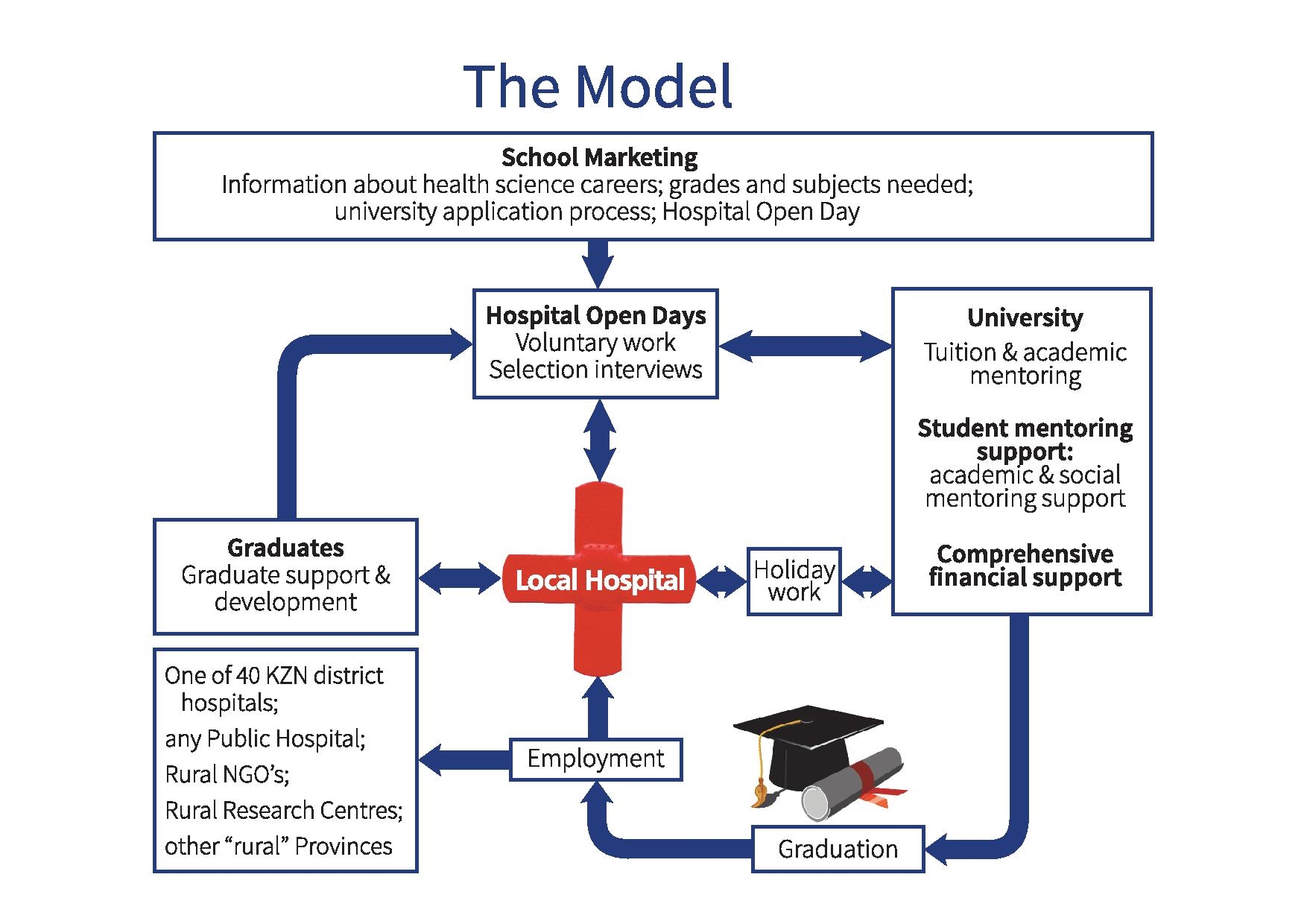Increase the number of healthcare staff in rural hospitals
We seek to address the shortages of healthcare staff at participating rural hospitals in KwaZulu-Natal and Eastern Cape Provinces. This is achieved through the identification and support of rural youth who have the potential, and interest in becoming healthcare providers.
Rural hospitals face chronic shortages of critical healthcare workers due to a number of reasons including: the overall shortages of healthcare workers in the country, lack of work opportunities for spouses, poor schooling for healthcare providers children, lack of support from family and friends because of distance, and many more. This is the reason we invest in rural youth, because they are more likely on graduation, to live and work in rural areas than those from urban areas.
Our main intervention is the provision of academic and social mentoring support, as well as top-up financial support, to ensure the students we support have the best opportunity to succeed.
The process works as follows:
- We identify suitable candidates by means of outreach programmes in rural schools where we inform pupils of health science disciplines as a career options.
- Learners who are interested in studying a health science degree are invited to attend the Hospital Open Day, where they meet various qualified healthcare professionals and learn more about the different professions, and how a hospital operates.
- Learners are required to apply to university themselves in order to be considered for UYDF support. In addition, they are required to complete one week’s voluntary work at the hospital and to attend the selection interviews.
- Learners who come from the area, have obtained a place to study a health science degree, and have successfully applied for NSFAS financial support, are interviewed and selected for support
- Once a student joins the programme, they are immediately allocated to a mentor where the academic and social mentoring support starts. In addition they receive top-up financial support to supplement their NSFAS allowances.
- On graduation, we attempt to secure them positions at local hospitals to allow them to honour their work back contracts.
- We support graduates with their integration into the hospital working environment, as well as their on-going professional development.
We also conduct research on rural health recruitment and retention to inform and improve our work and to influence the recruitment and training of healthcare professionals for rural practice.
Our Model is presented below:
